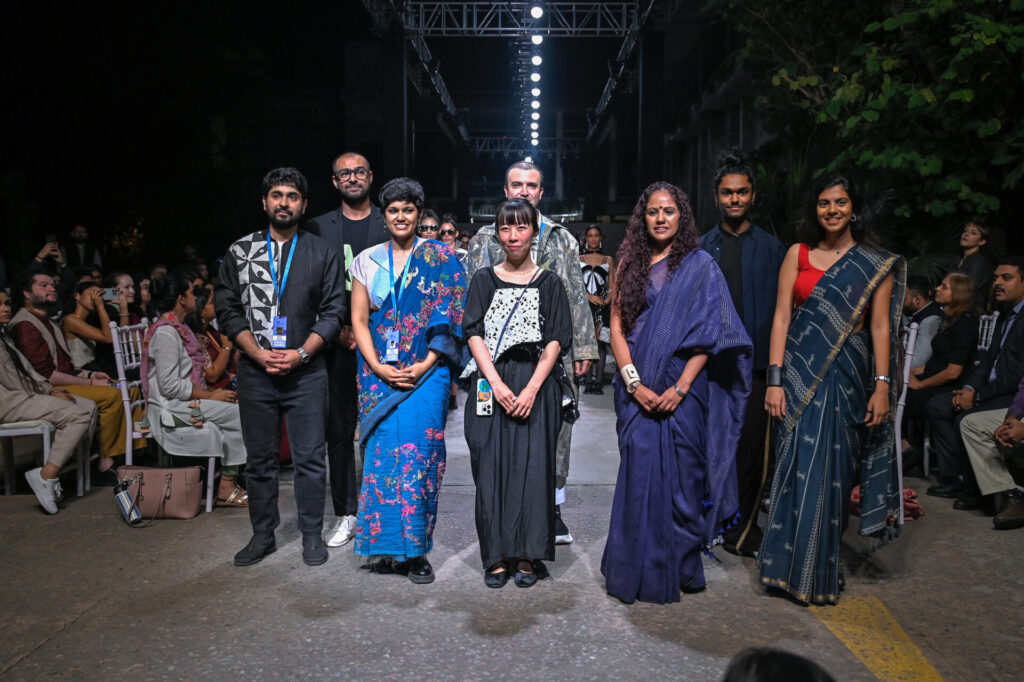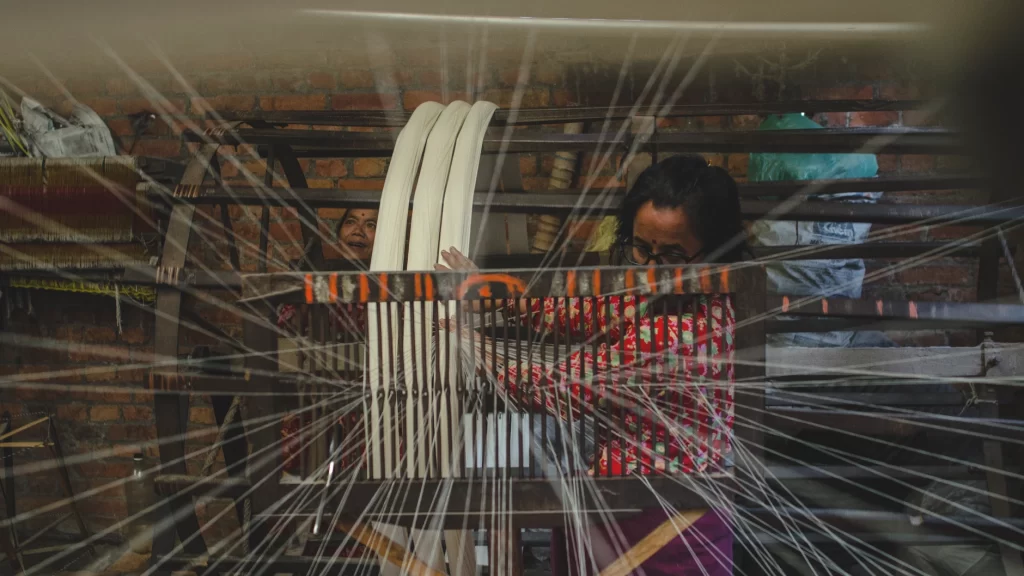The fifth edition of the Circular Design Challenge (CDC) concluded with the Sustainable Fashion Day, at Lakme Fashion Week x FDCI, in New Delhi, on October 12. The event was presented by R|Elan, a fabric brand from the house of Reliance (RIL), in partnership with Lakme Fashion Week and The United Nations India, along with The British Council representing the UK, Redress representing Hong Kong/Asia Pacific, and Istituto Marangoni for the European Union.
The CDC provides an opportunity for young fashion designers and entrepreneurs, with an ethos of sustainability, circularity and innovation, to showcase their products. This year, the contest recognised the values encapsulated in Mission LiFE (Lifestyle for Environment), recently endorsed by the G20 Summit, which strives to show that Indian culture and living traditions are inherently sustainable.
Indian label Without, by Anish Malpani, won the CDC, with European designer Felipe Fiallo being declared runner-up. But to our delight, the Sustainable Fashion Day featured not just the winners, but all six finalists of the Circular Design challenge. Presenting to you the unique work of each of these six, as they wove circularity and sustainability into their designs, along with their own signature touch.
Without by Anish Malpani
Redefining functionality with upcycled eyewear
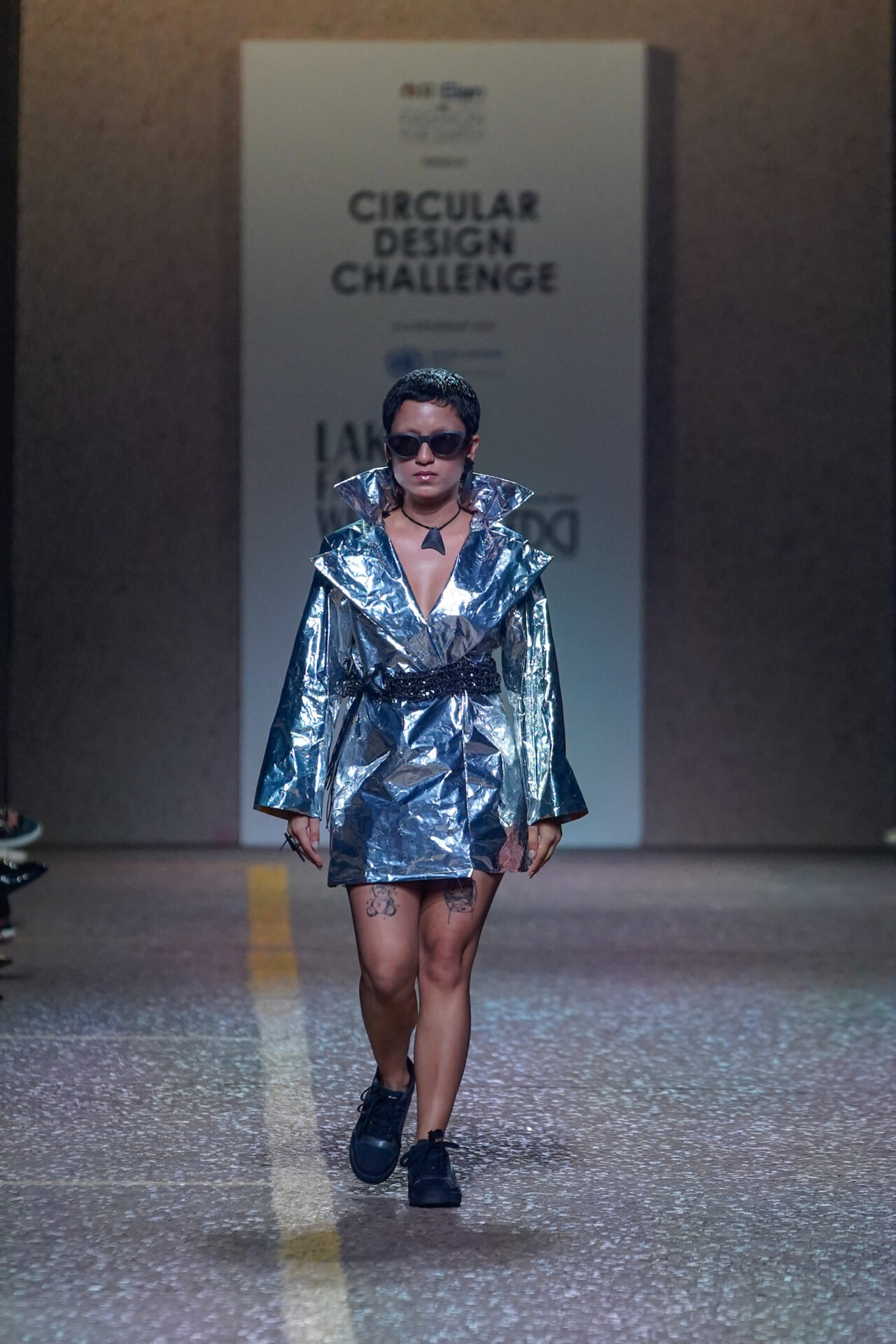
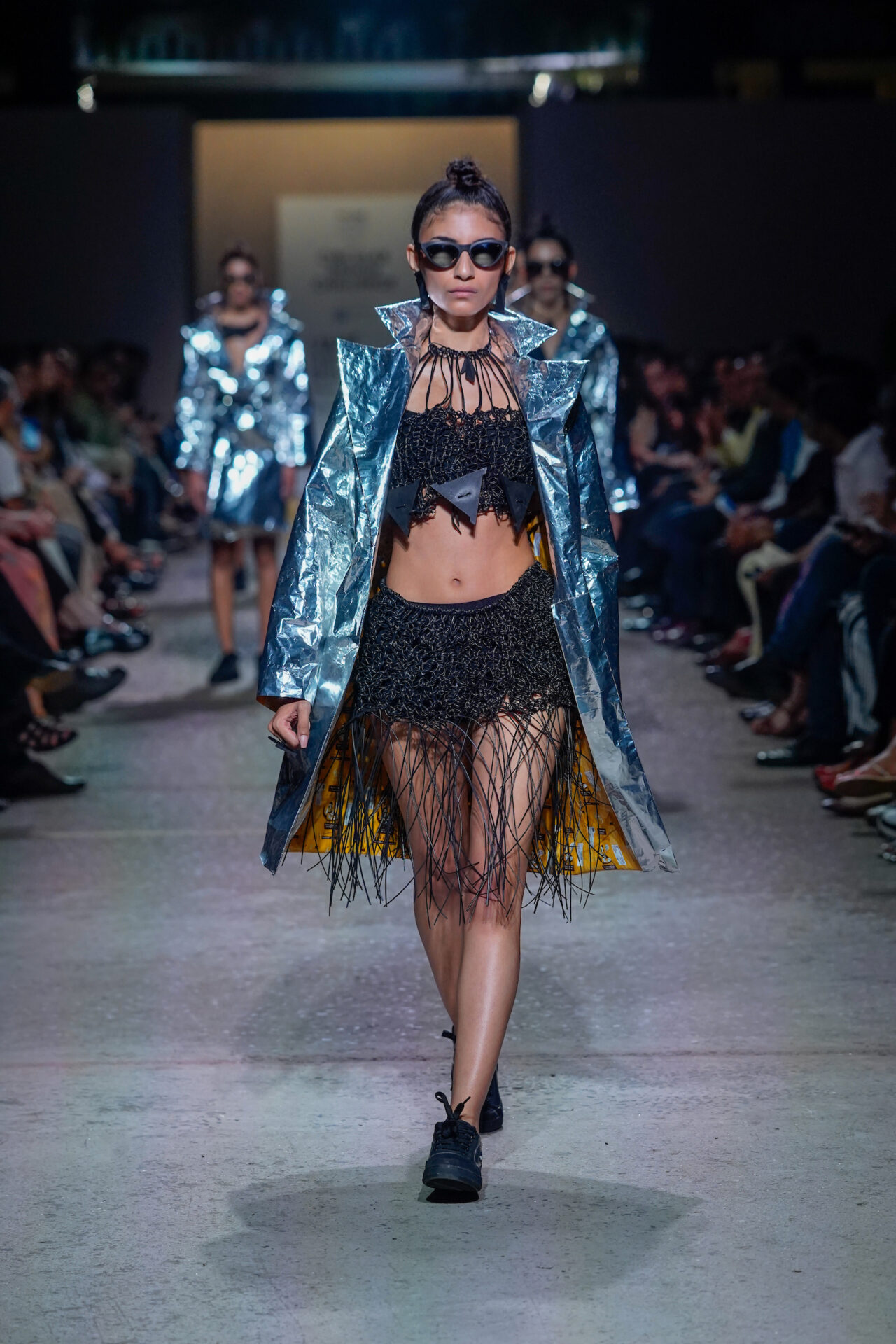
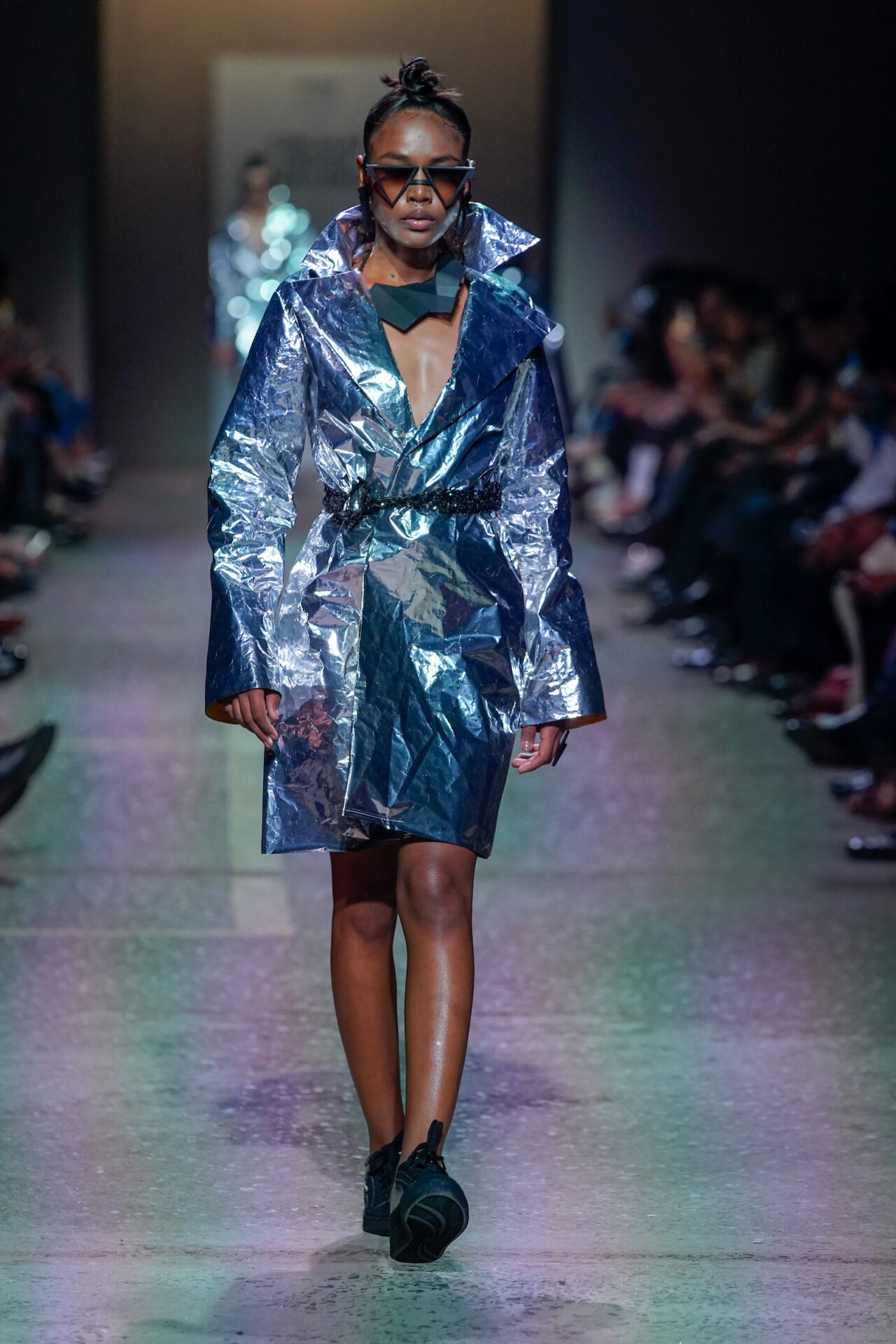
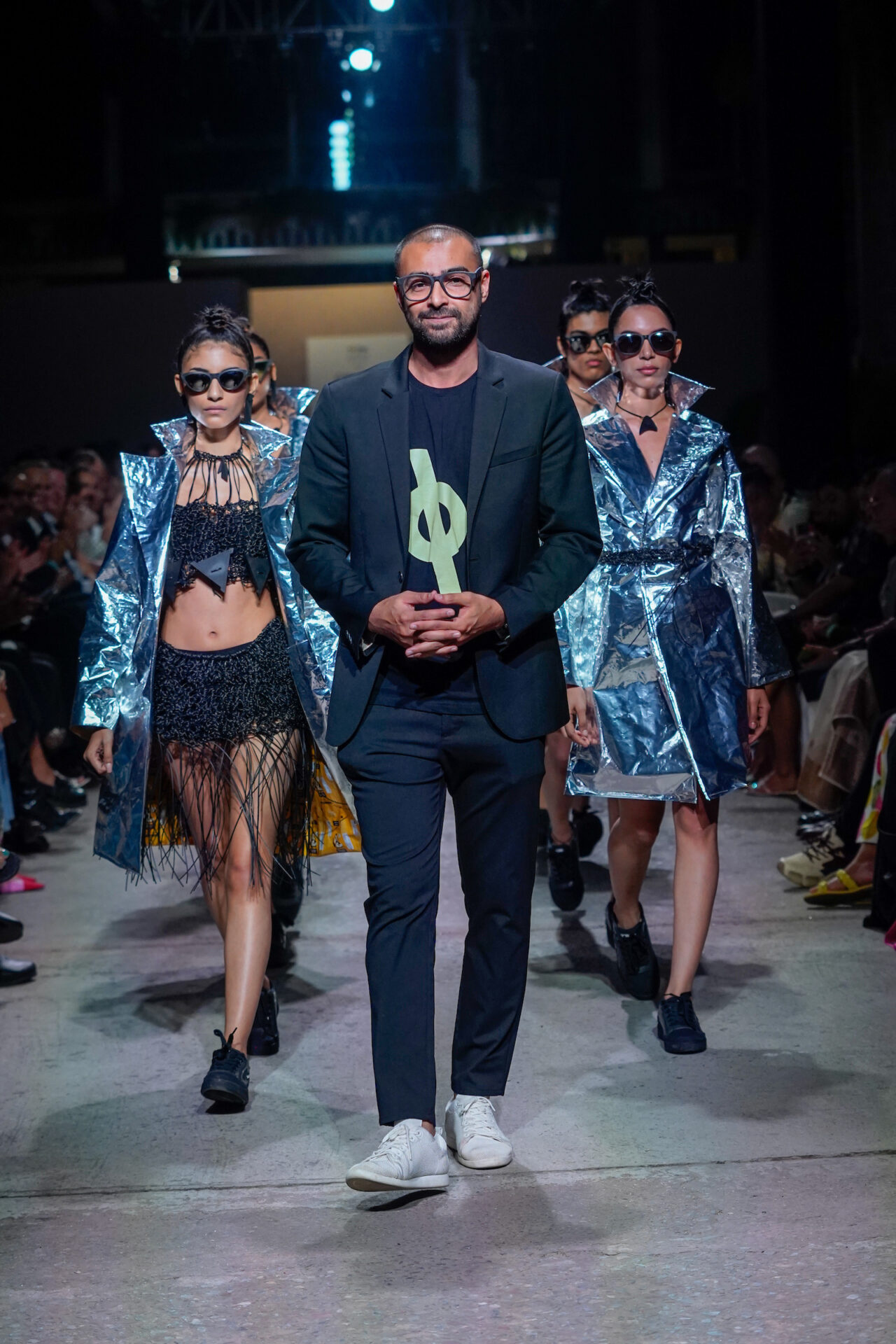
Without is a revolutionary eyewear brand by Pune-based Anish Malpani, who reshapes waste into innovative fashion. Malpani’s patent-pending breakthrough technology uses a chemo-mechanical process to turn otherwise impossible-to-recycle MLP or multi-layered plastic (chips packets, chocolate wrappers, etc) into stylish, functional sunglasses with UV-polarized lenses and a flexible, durable design that blends seamlessly with your lifestyle.
In a world where fashion often neglects its environmental and social impact, Without, which collaborates with the Pune Waste Picker Collective, stands as an icon of innovation. With their monochrome hues and sparkling silver jackets, these frames are not just accessories, they are a commitment to conscious style, proving that mindful fashion is the way forward.
Felipe Fiallo
Futuristic luxury with handcrafted footwear
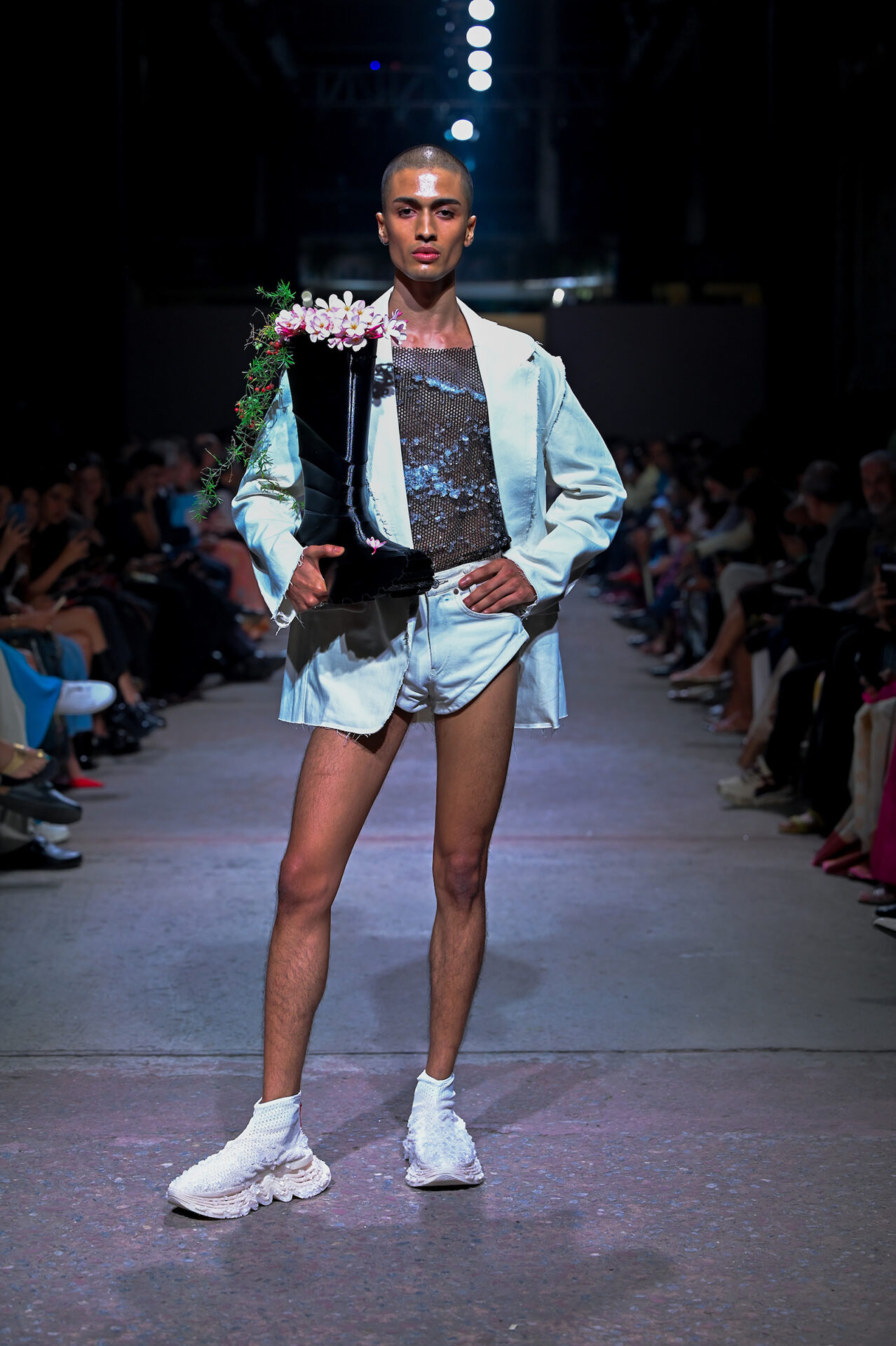
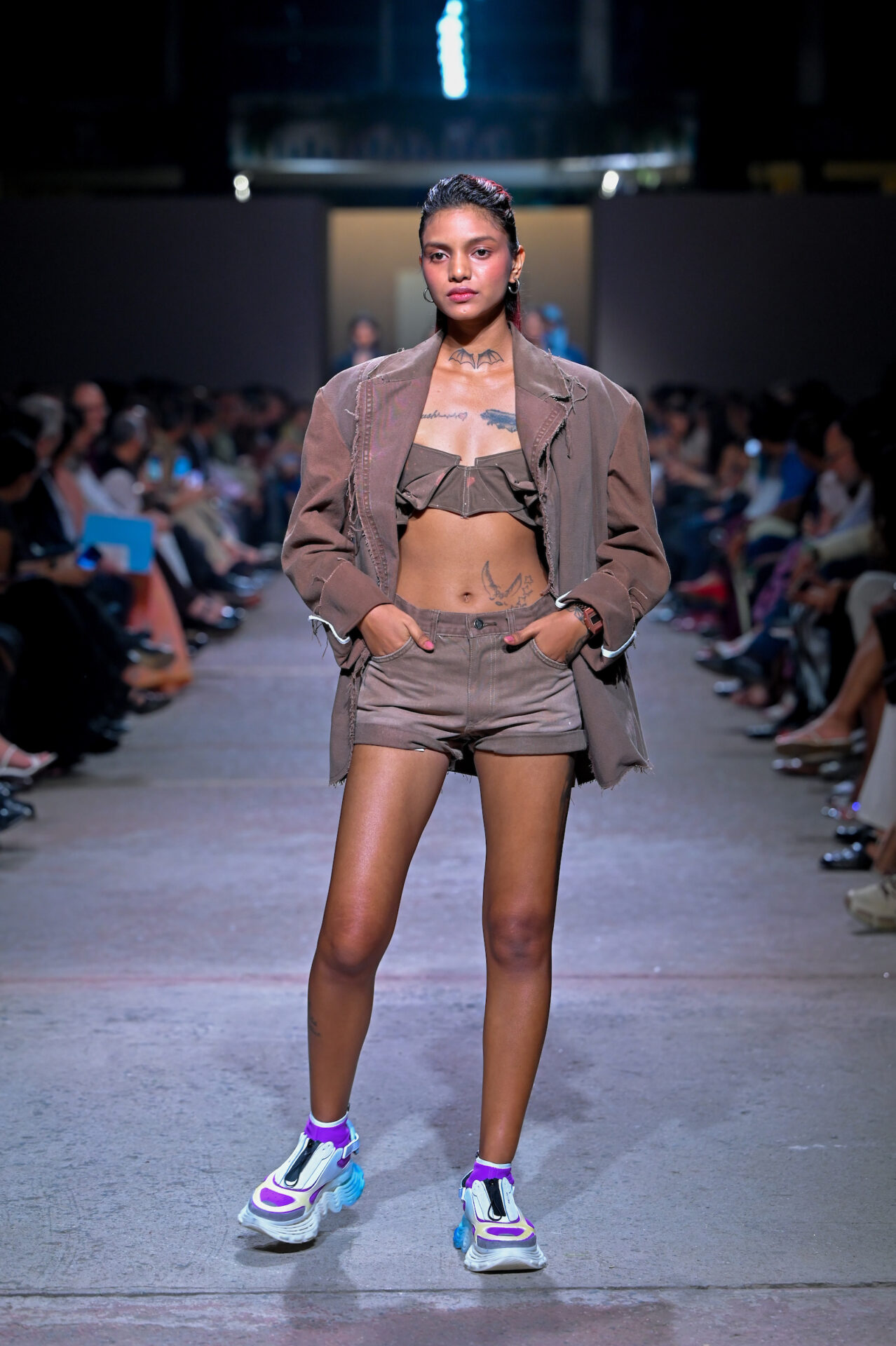
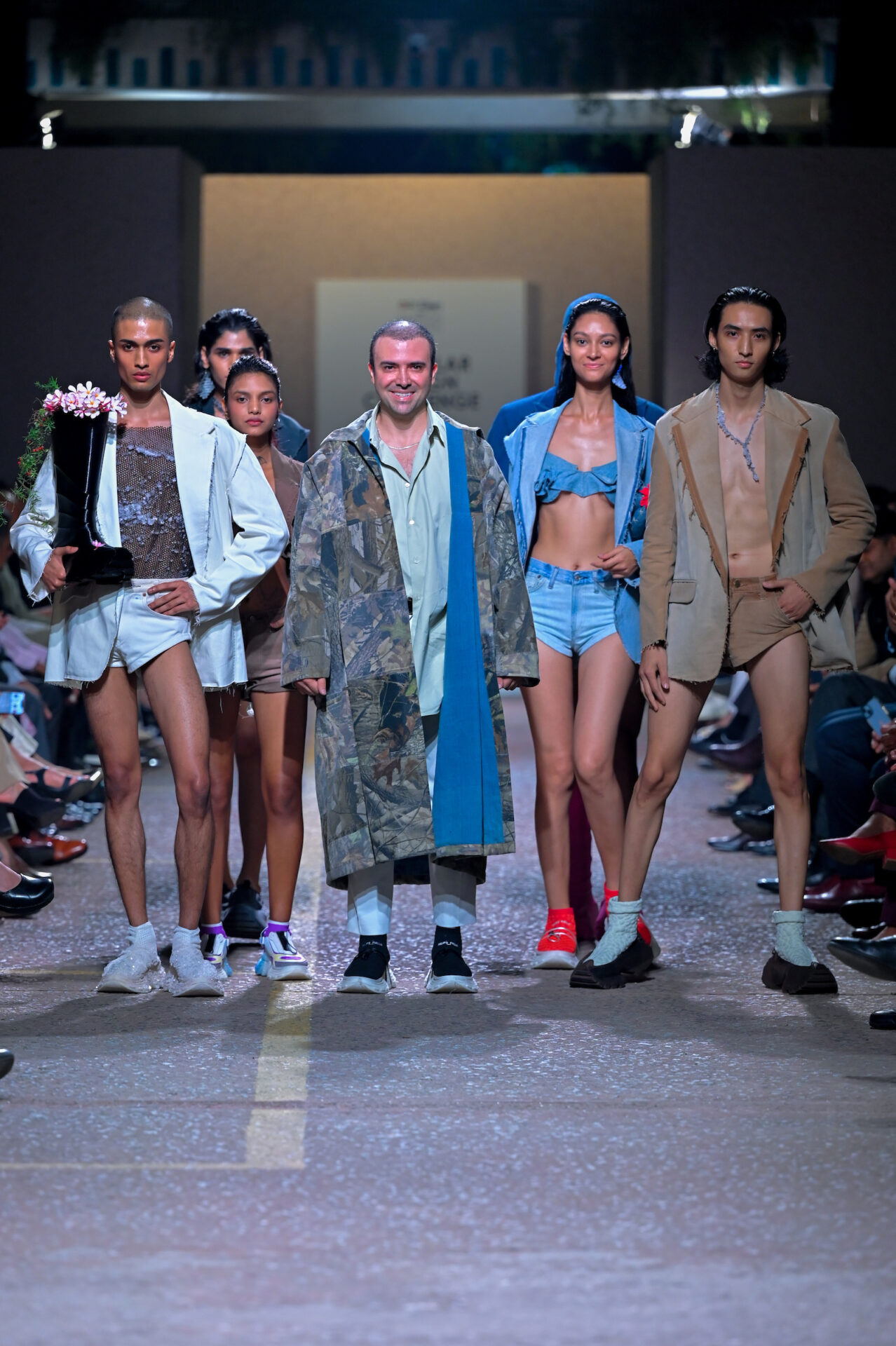
In Felipe Fiallo’s world, each shoe tells a story of digital craftsmanship, sustainability and style. An alumnus of Istituto Marangoni, Fiallo’s luxury footwear brand is a fusion of future-forward design and Milanese craftsmanship. His vibrant high platforms and avant-garde boots are made using a bio-based technology that helps recycle TPU or thermoplastic polyurethane. Fiallo’s work is a glimpse into the future of footwear, which is better for the planet, and stylish by far. With every step, you’re not just wearing shoes; you’re making a case for a more sustainable, stylish, and conscious tomorrow.
Banofi + Studio Beej by Jinali Mody and Arundhati Kumar
Eco-chic heritage with plant-based accessories
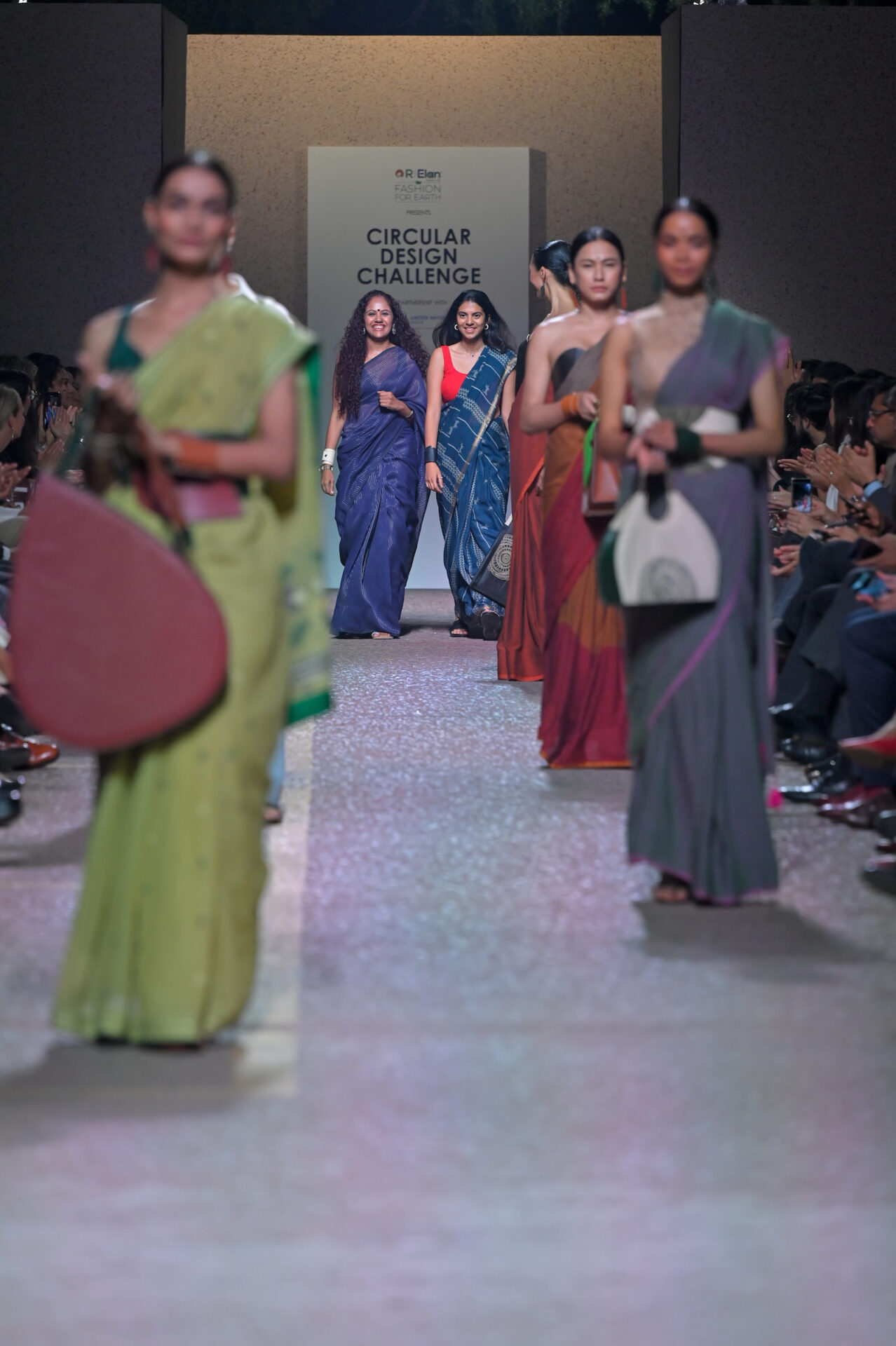
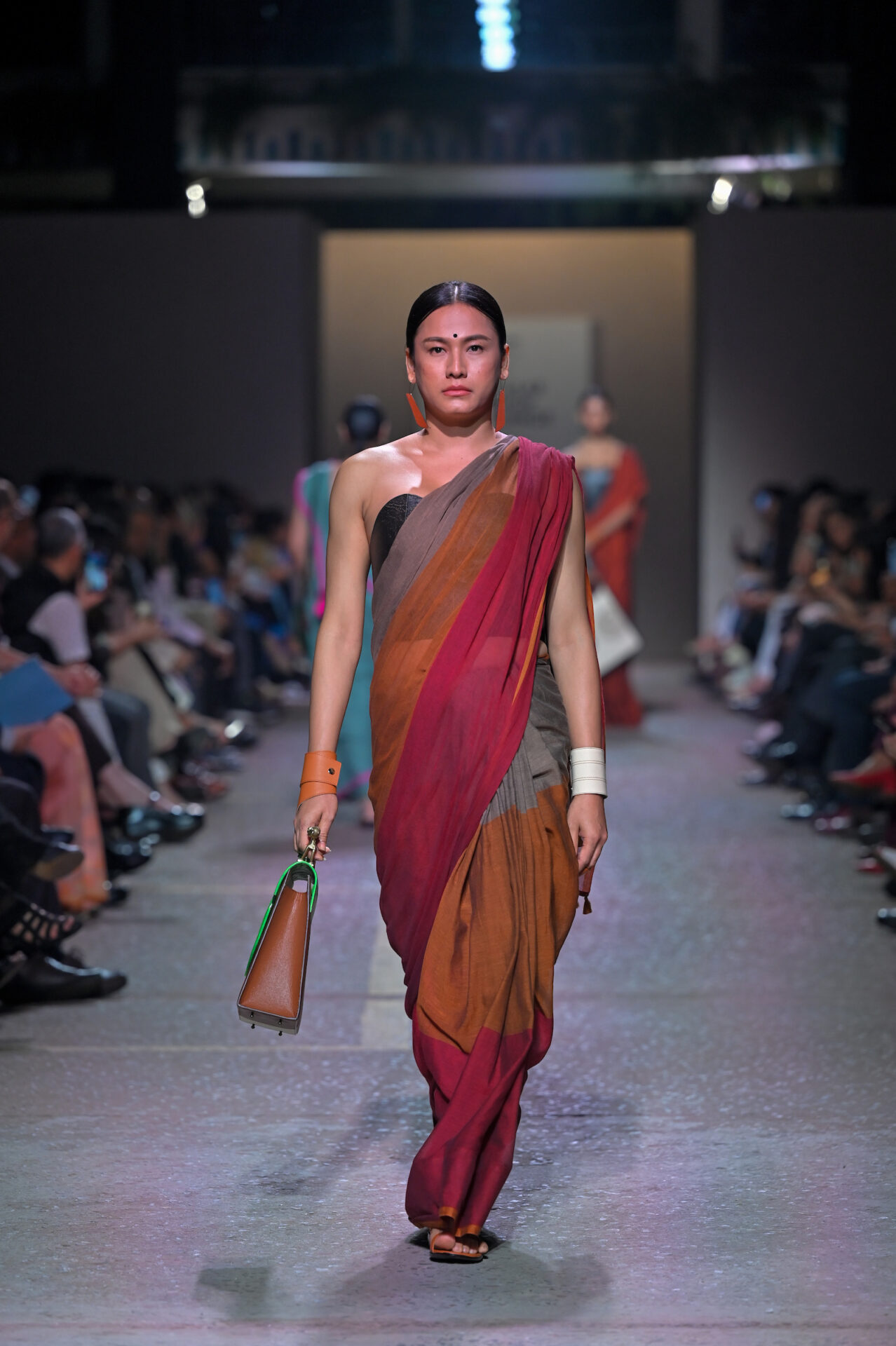
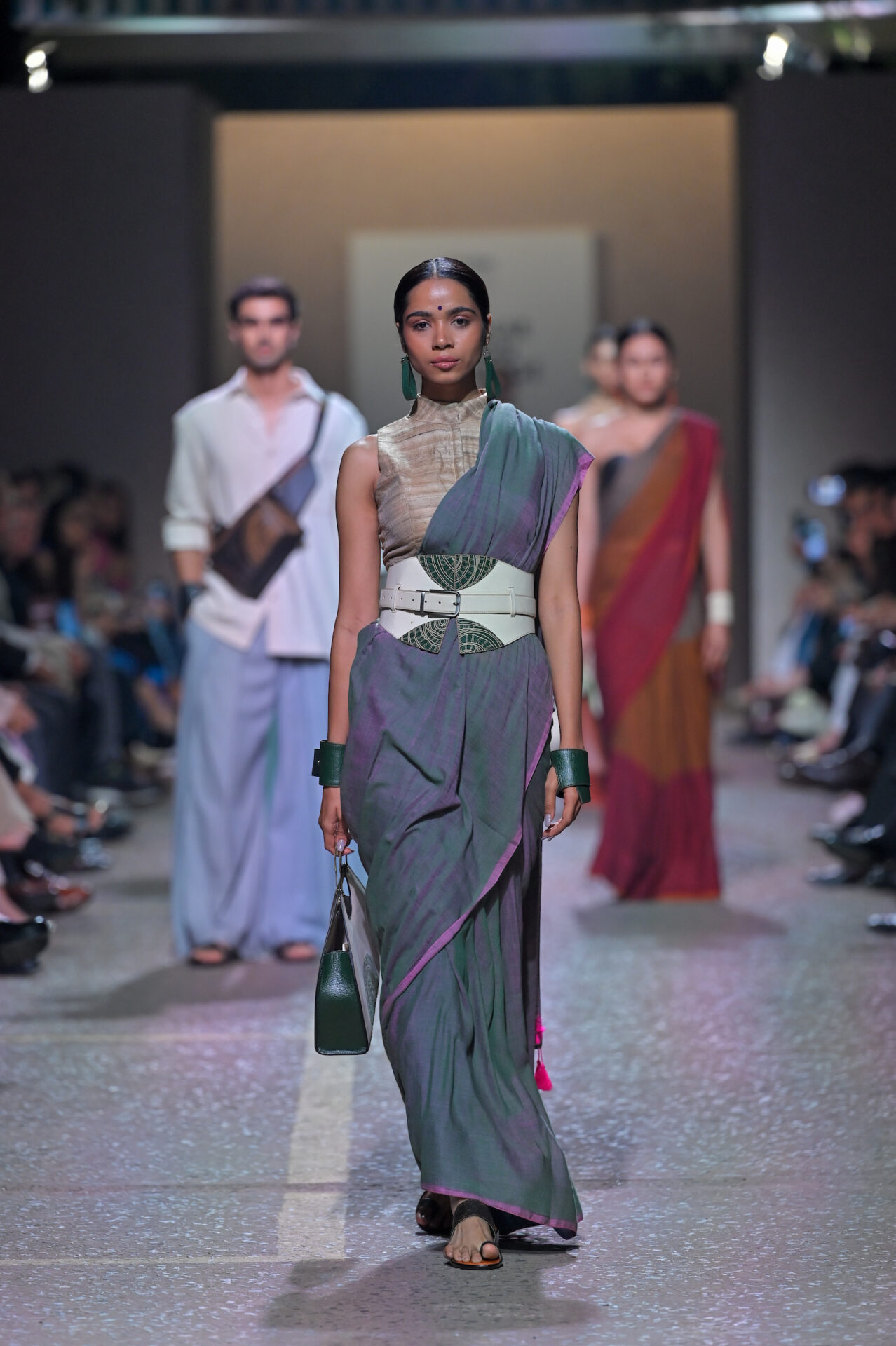
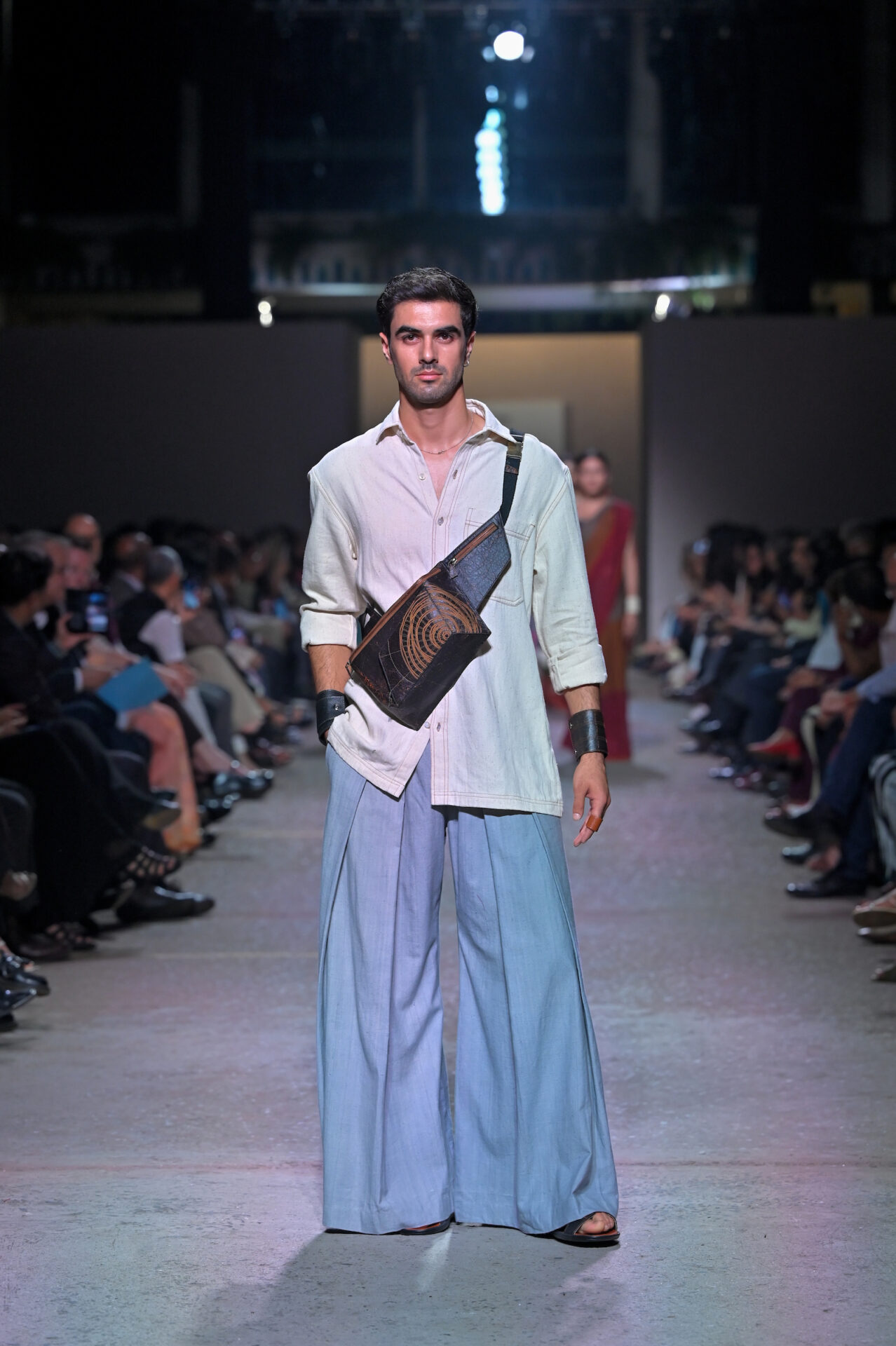
Biparita, the spotlight collection by Studio Beej, in association with Banofi, presented super-stylish plant-based leather bags, belts, clutches, and accessories. Crafted from Banofi, a plant-based leather made from banana crop waste, by Benaras-based Jinali Mody’s company, the collection was influenced by the vibrant arts of West Bengal. Each accessory narrated a tale of modernity, innovation and tradition, a live testament to a commitment to a greener, more circular future. A perfect blend of new-age materials and Studio Beej’s signature style, Biparita, the coming together of opposites as the name implies, is a breakthrough collection where sustainability takes centrestage.
Amesh by Amesh Wijesekera
Addressing waste with stylish knitwear
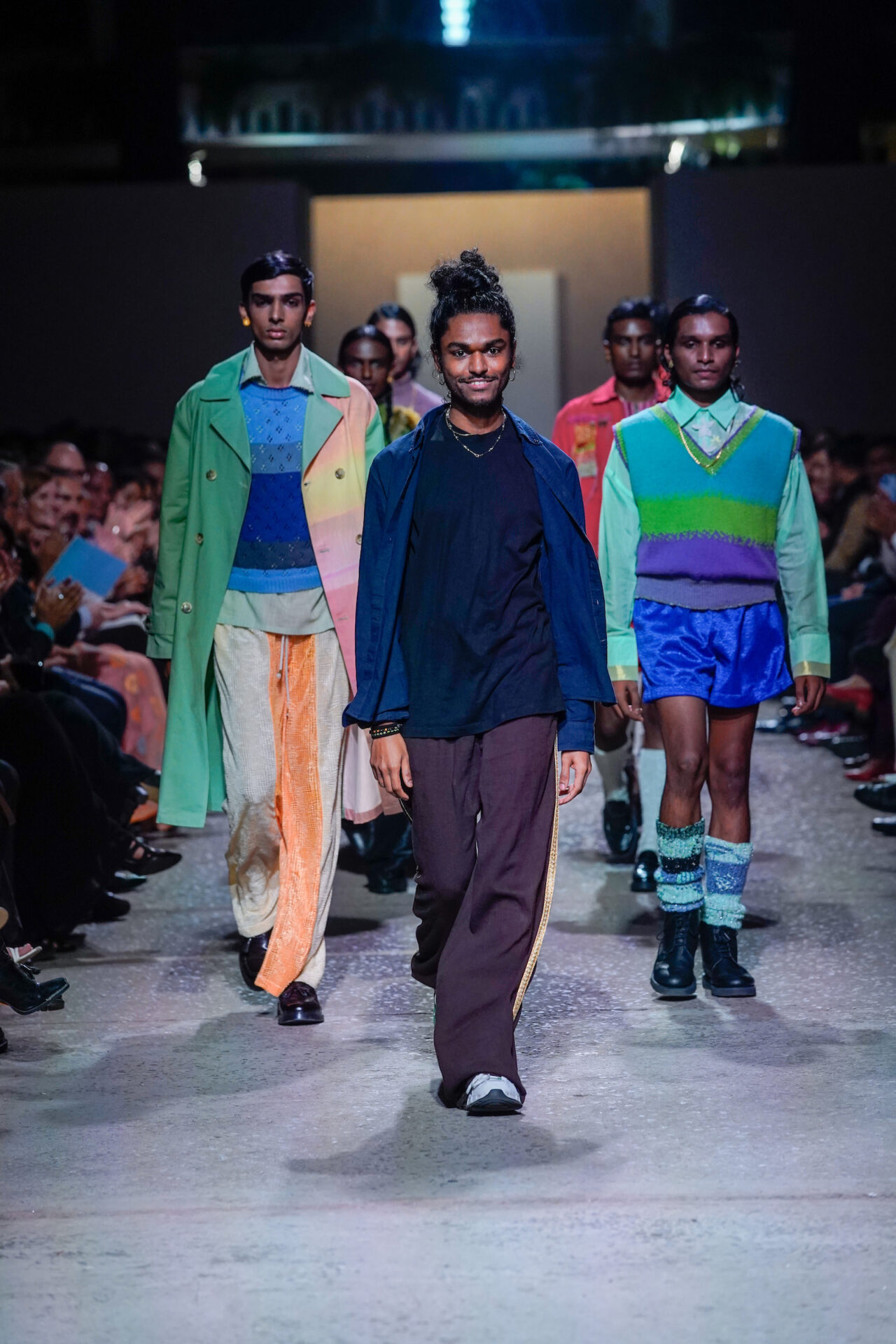
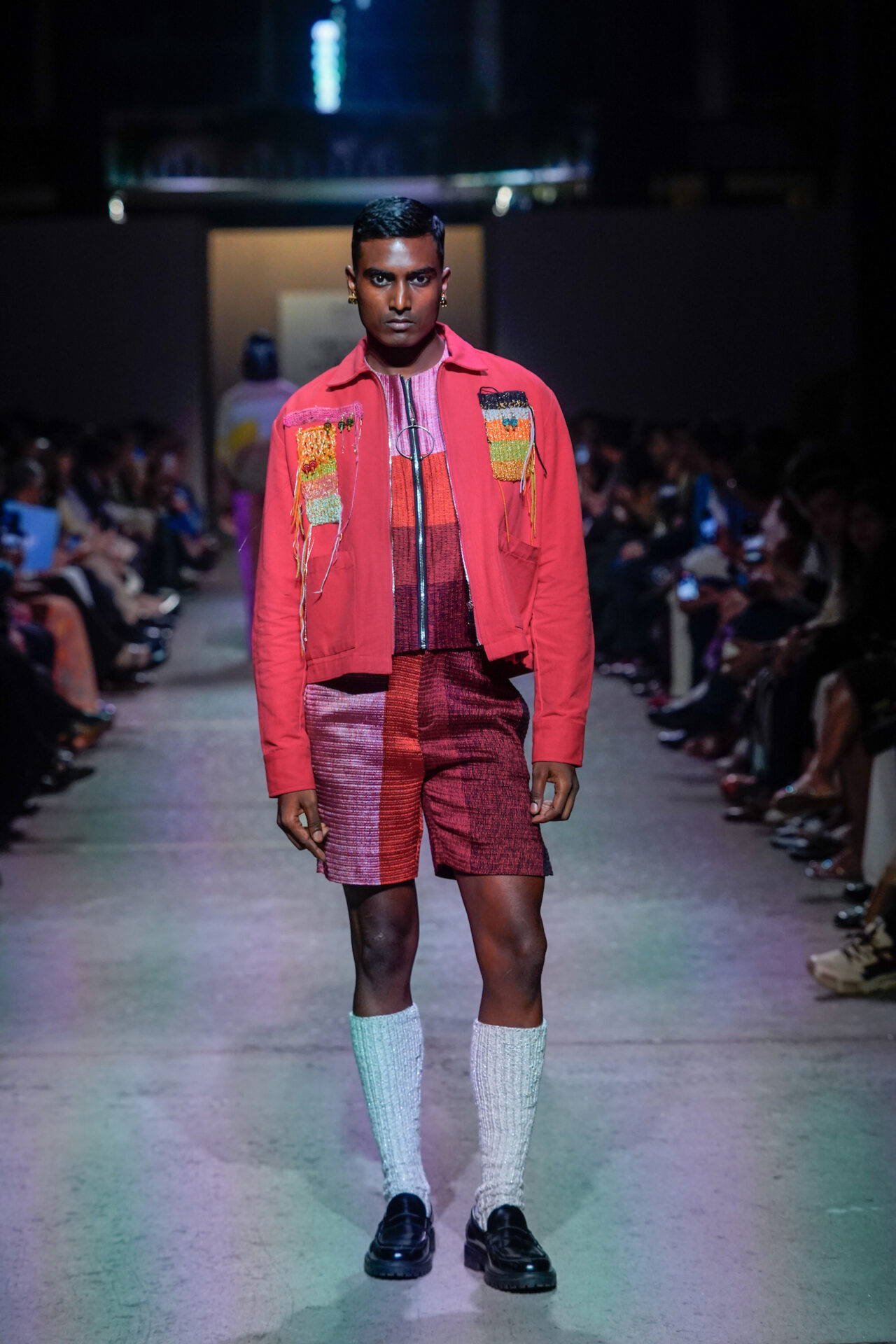
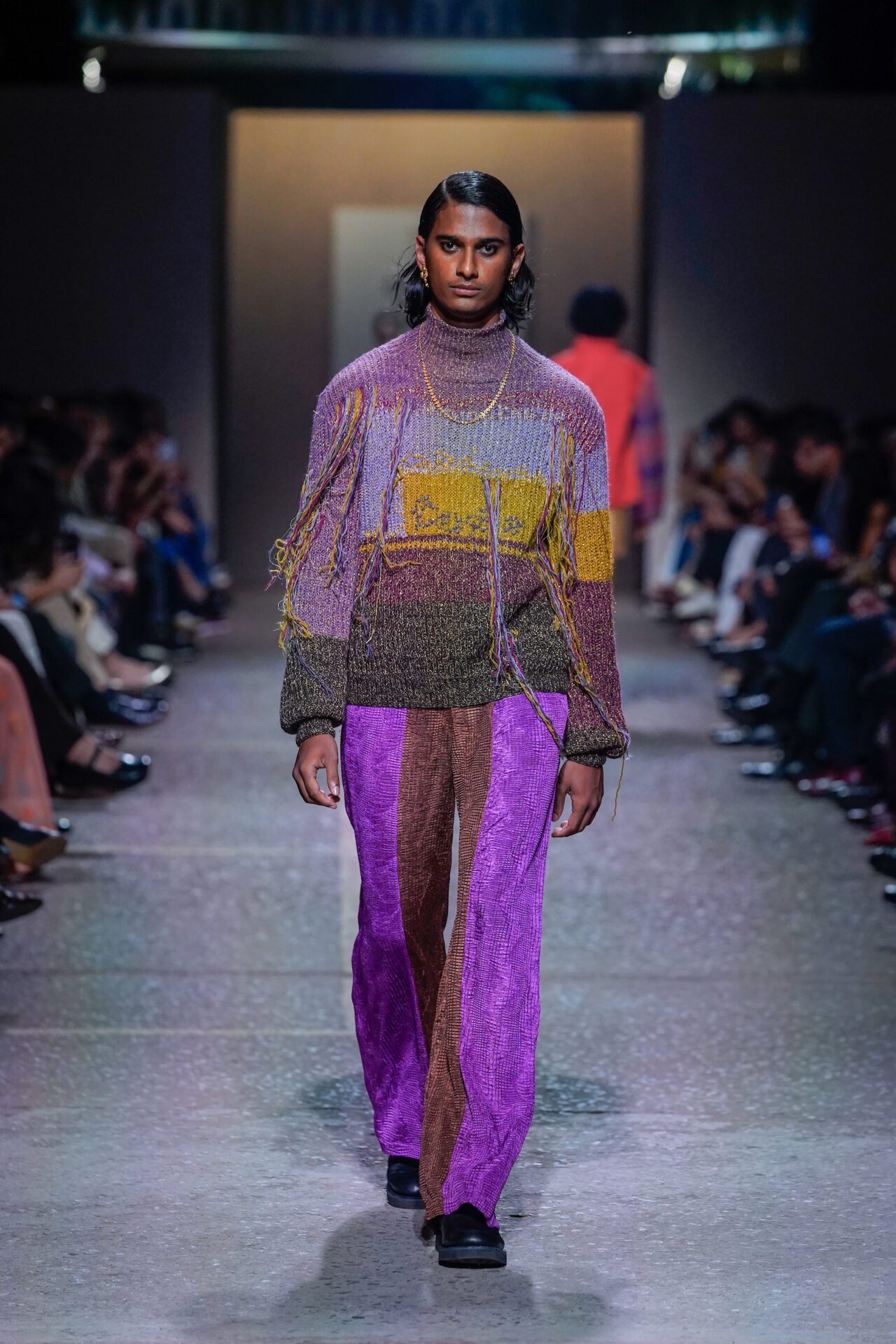
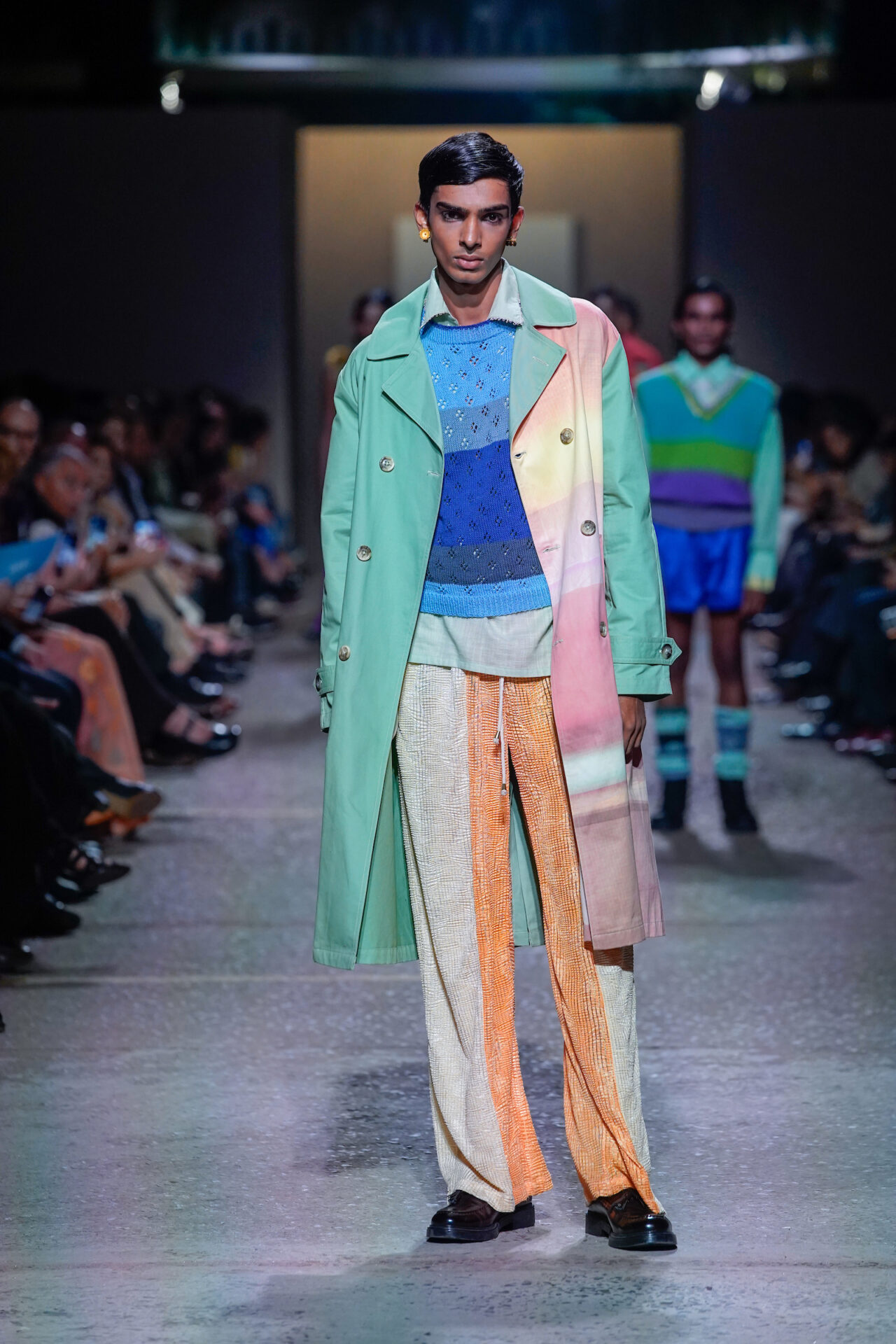
Sri Lankan designer Amesh Wijesekera has been making waves in London, and is a distinguished LVMH Prize winner. His work is embedded in sustainable practices, as he collaborates closely with local artisans in Sri Lanka, to create knitwear, crocheted and handloom creations, by repurposing surplus fibre from factories.
Amesh’s capsule collection features statement pieces like sea green trench coats and biker jackets in hues of red and purple, each reflecting his unwavering commitment to eco-conscious fashion. With a diverse colour palette, featuring cinnamon earth, burning orange, ruby and more, every garment serves to keep leftover factory waste from landfill, connecting you to a fashion legacy that goes beyond the runway, to the planet.
Studio Medium by Riddhi Jain
Mindfully-crafted, trendy essentials
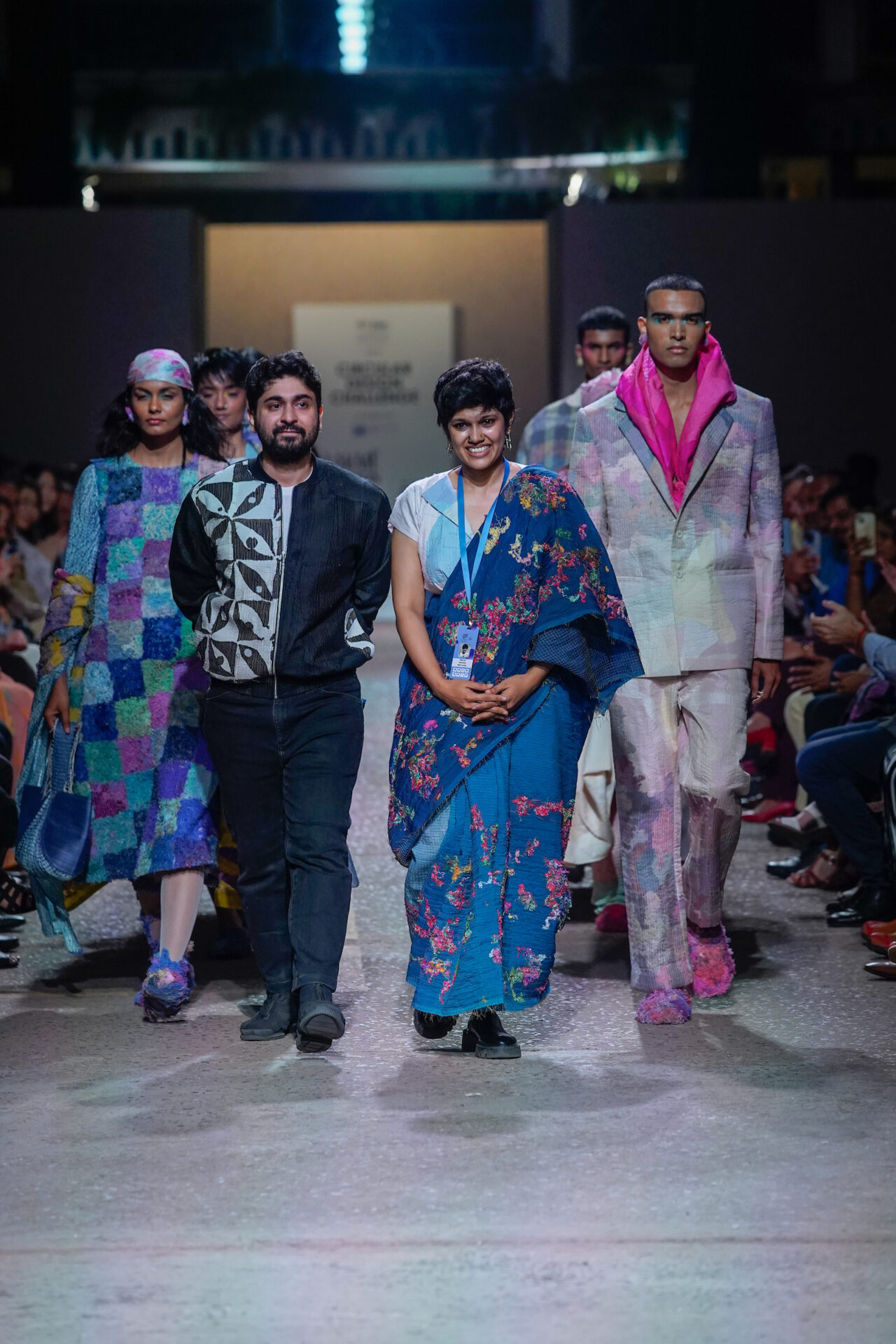
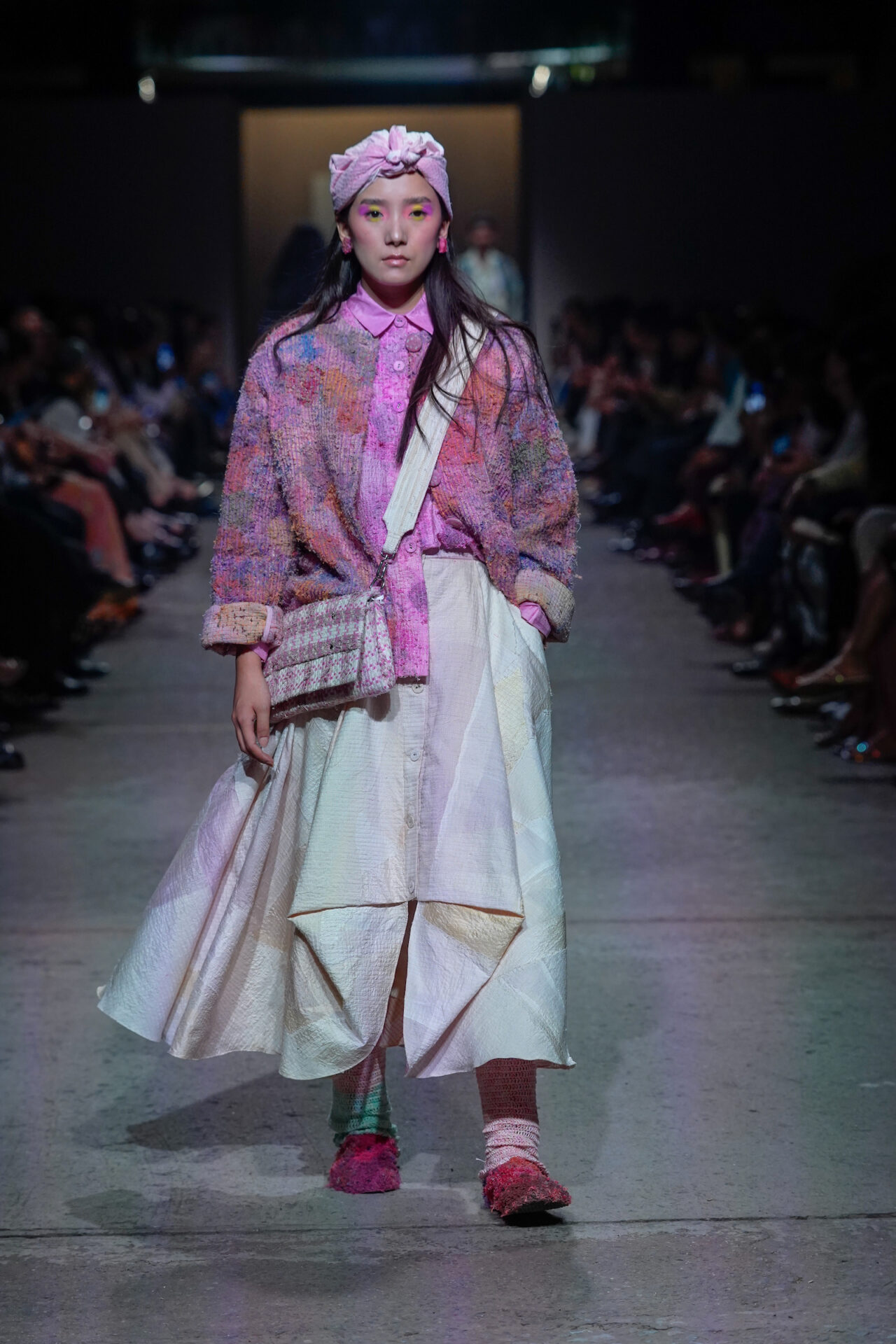
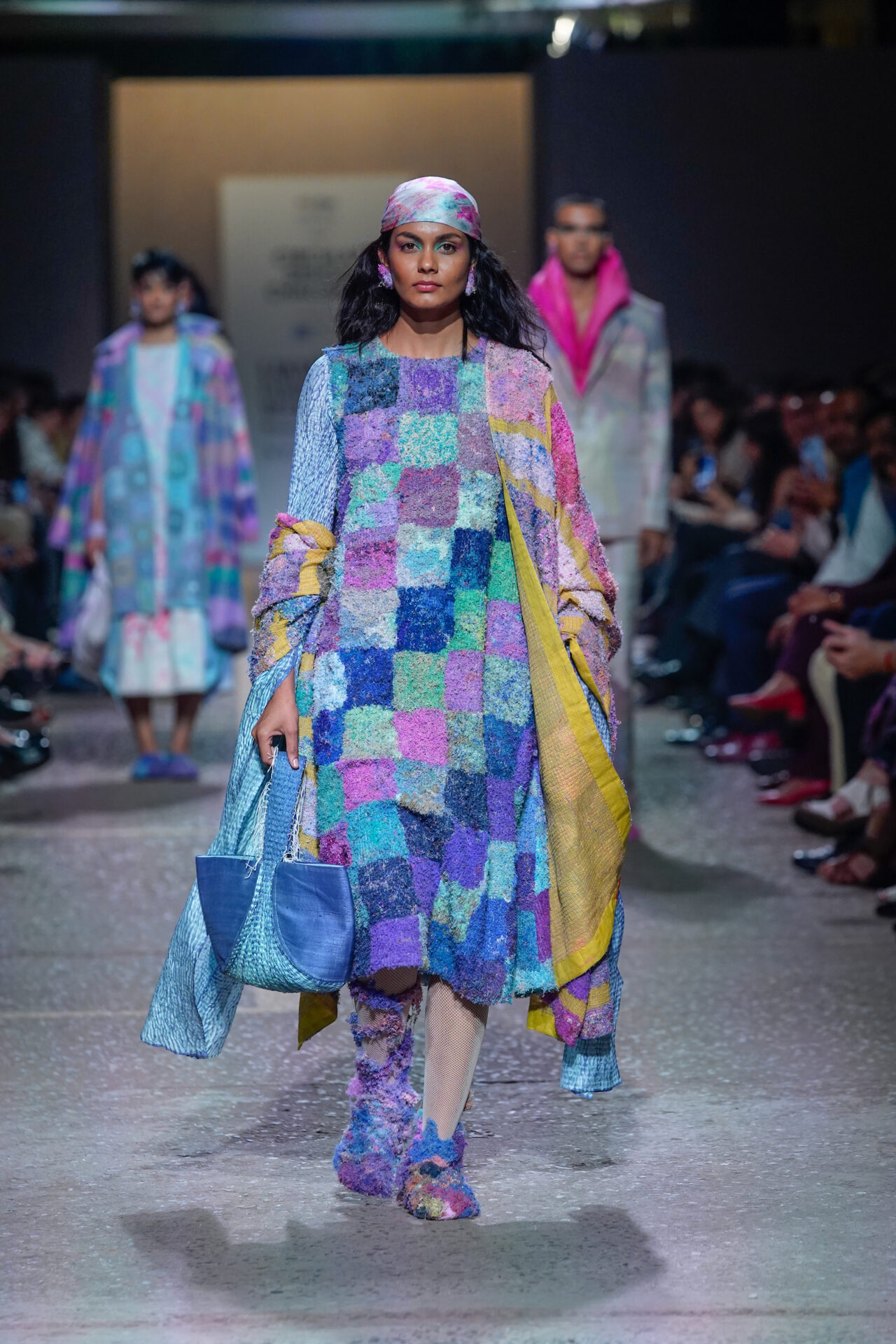
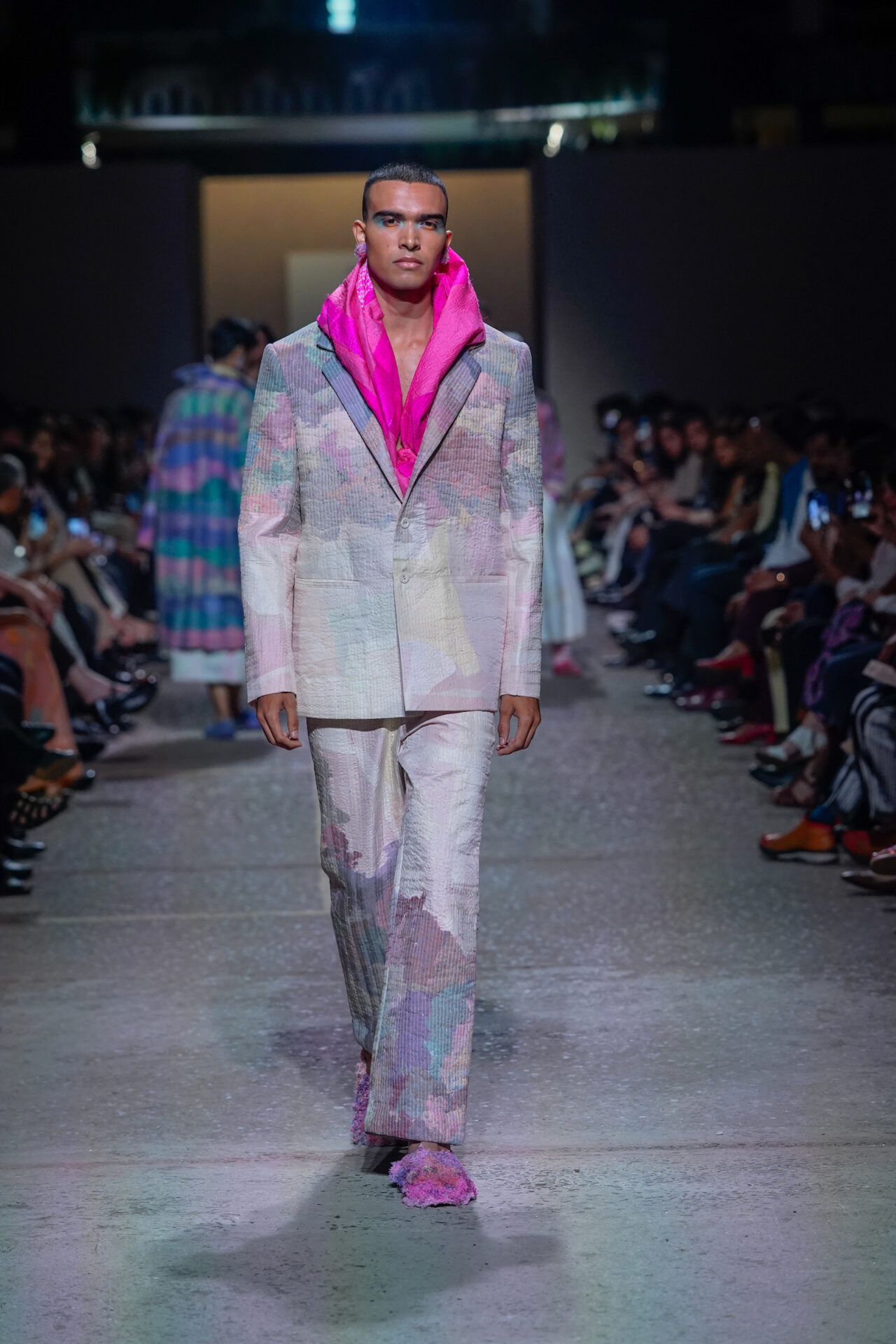
Studio Medium channels an ingenious approach, using eco-conscious craftsmanship to transform thread waste and textile offcuts into vibrant bandhani-style textiles and garments. The runway showcased separates, redefining wardrobe essentials with long-sleeved jackets, hip-length shirts and comfortable dresses, each piece an interactive nod to sustainable fashion.
Techniques like embroidery, quilting and hand-knitting elevated each garment, infusing a distinct aesthetic that goes beyond style, connecting you to the lost art of fine craftsmanship.
The Tangram by Pei Wen-Jin
Geometric elegance with zero-waste patterns
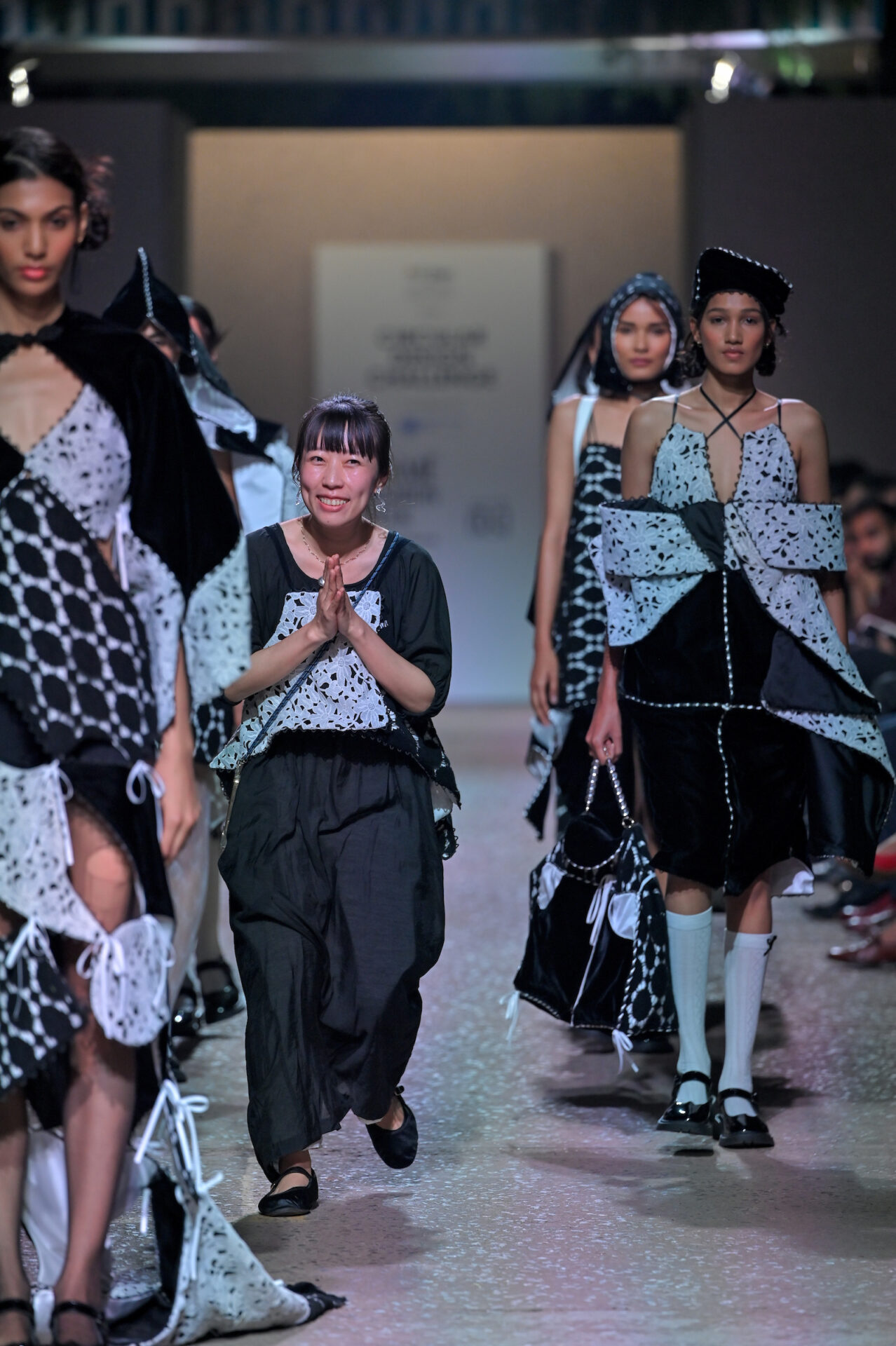
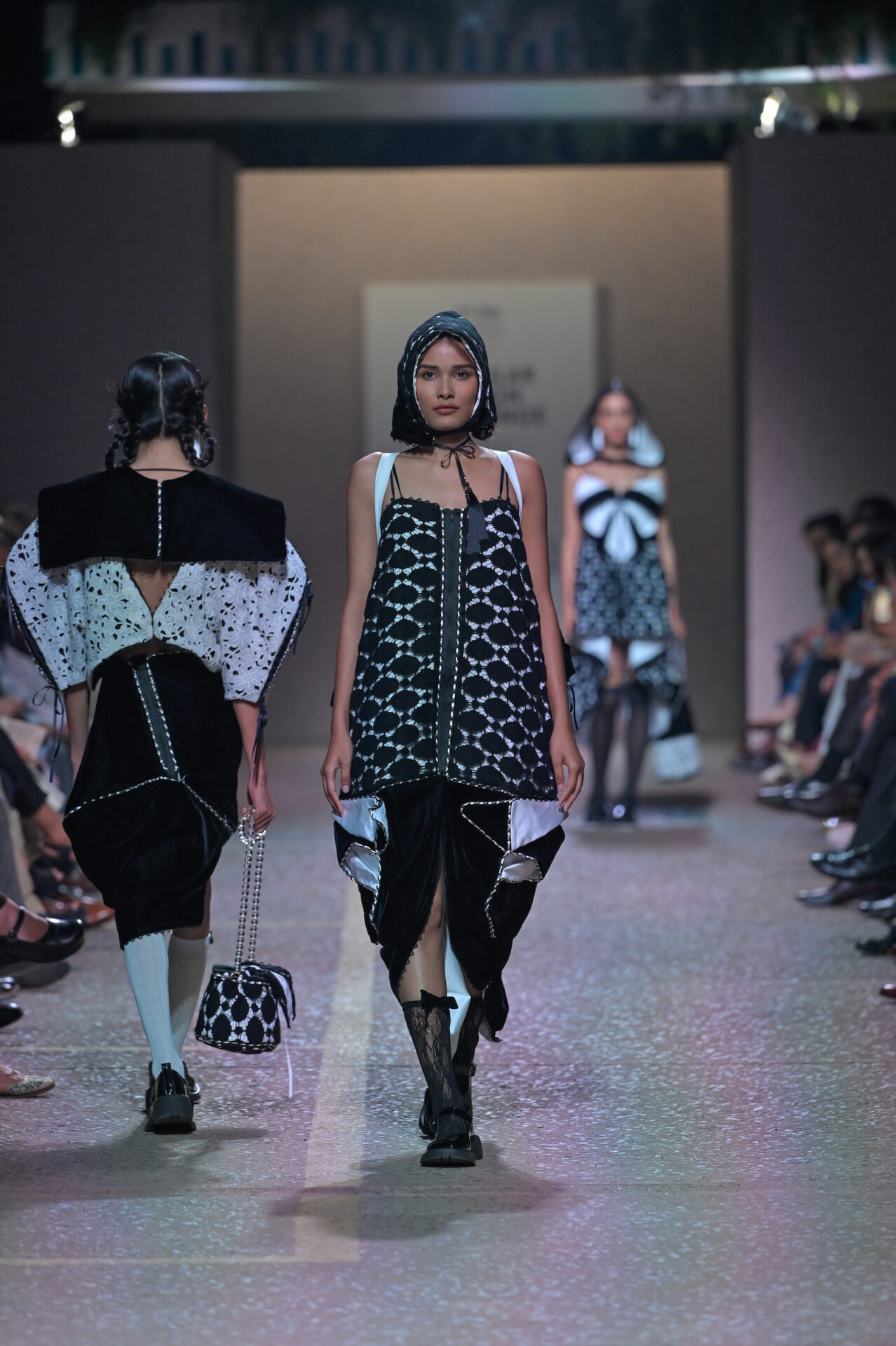
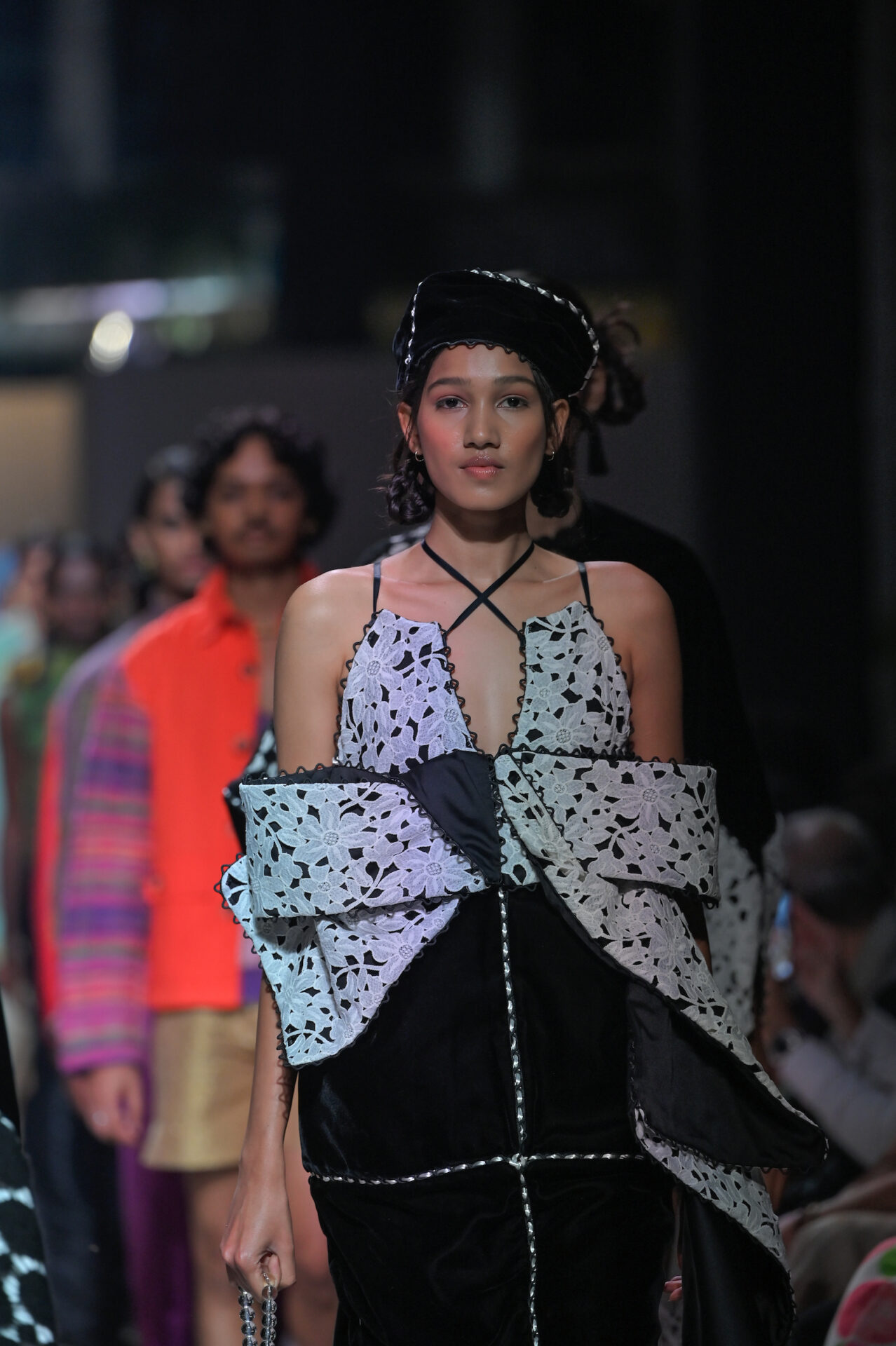
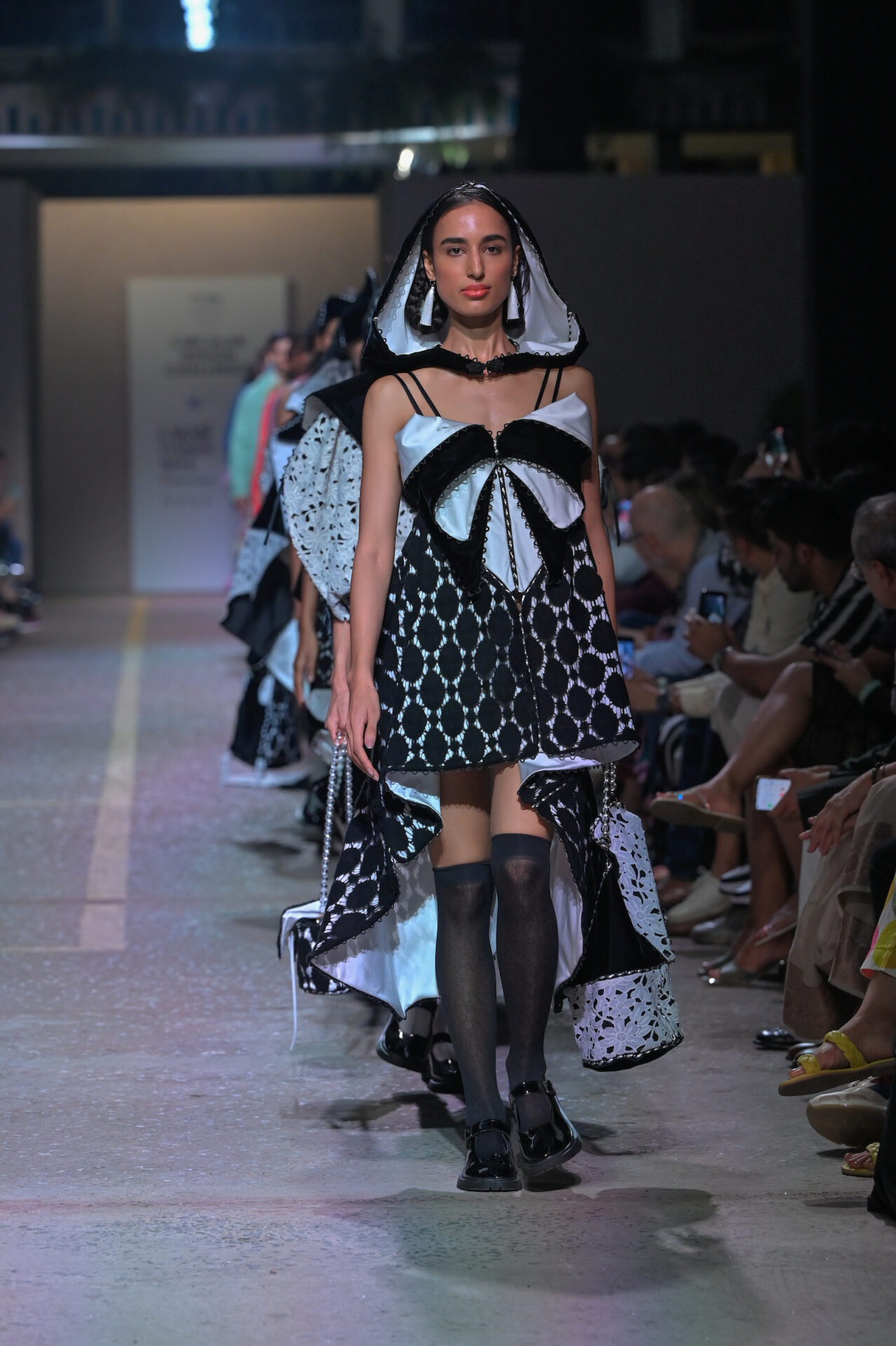
Discover The Tangram, a sustainable marvel inspired by zero-waste geometry. Pei Wen-Jin, a Redress Design Awards 2021 runner-up, presented voluminous, multiwear pieces for diverse body types. The monochrome collection featured playful tunics and cute midis with frills, emphasizing sustainable style with a touch of whimsy.
The interactive runway experience allowed viewers to witness the transformation of sample textile waste materials into art, inspiring a deeper connection to the philosophy that everything has a purpose. The Tangram not only redefines fashion but invites you to be part of a sustainable story that values creativity, diversity and the transformative power of conscious design.
Have you checked out the collections of any of these designers? Tell us what you think!

